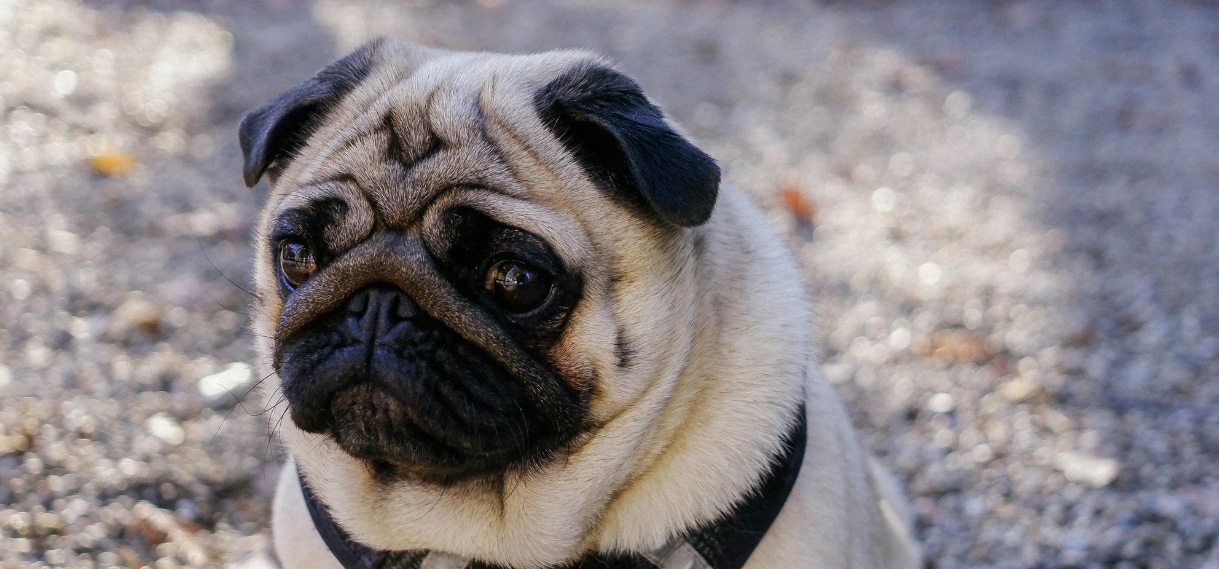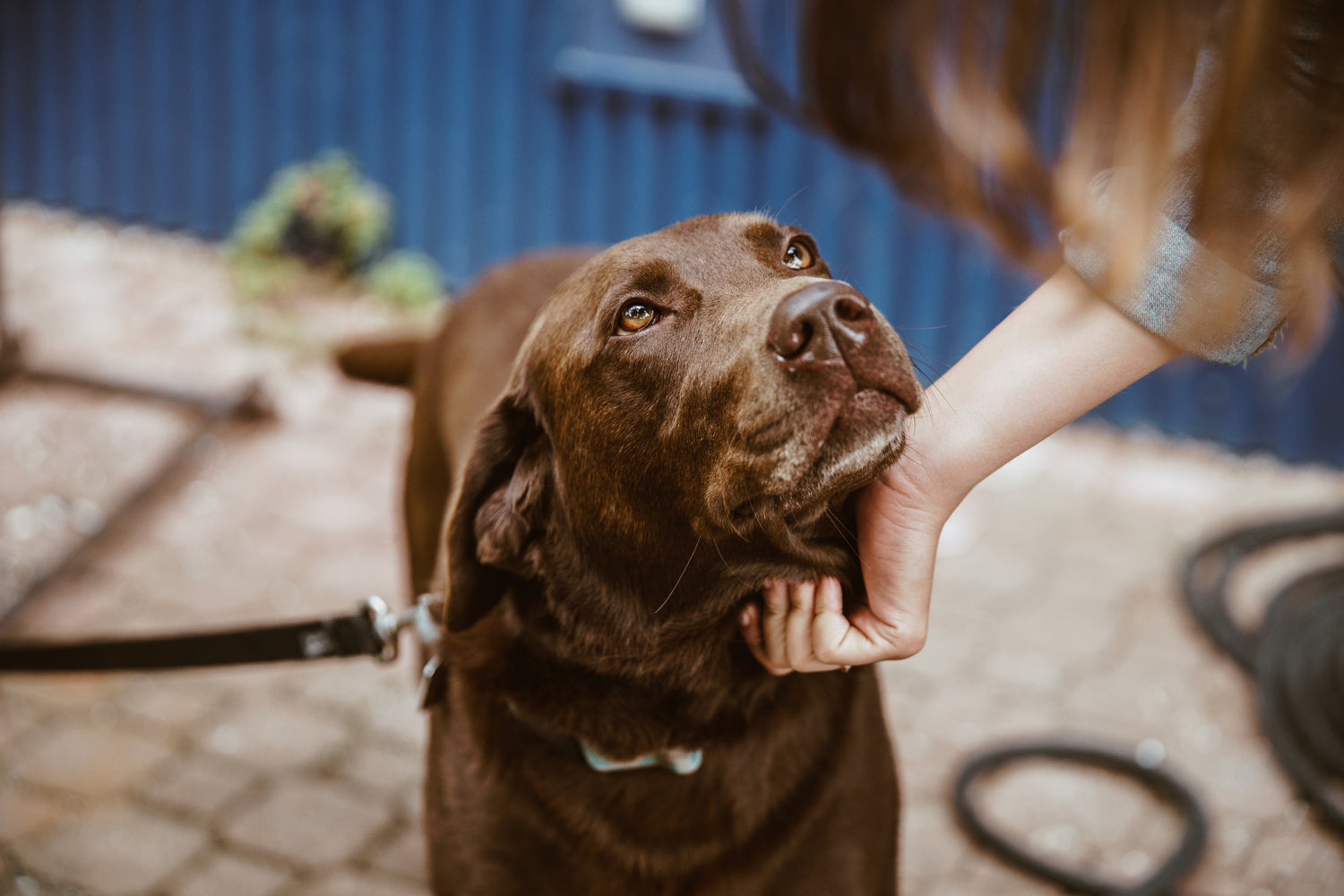My Dog has Pug Myelopathy
What Should I Do?

If you suspect your dog has Pug Myelopathy, you should take your dog to the vet immediately for a diagnosis. This is so that your dog can get the help and attention it needs, and your vet can advise you on what steps to take to help maintain your pug’s mobility and quality of life.
Early symptoms can be subtle and develop over time. You might have noticed your pug’s got a wobbly, unsteady gait that could be described as walking like a ‘drunken sailor’. Sometimes it looks as if the hips are sinking down while your pug’s walking. There may be light scuffing or knuckling of the back paws.
The hind leg paralysis will continue to progress and at this point you’ll see more severe knuckling.
To protect the paws, you’ll either want to consider a protective or corrective approach. A protective approach is finding boots that will stop the damage to the top of the paws caused by the knuckling. A corrective approach keeps the paw flat. Splints are one way of doing this. Another very popular option are Maximus PawsUp, a boot that is specifically designed to help stop knuckling when they’re being worn. Walking on grass rather than tarmac will also minimise the skin being scraped off by the knuckling.
It’s still unclear how best to treat pug myelopathy as understanding of the disease is still in its infancy. However, although a few vets advocate surgery, studies done so far indicate that surgery’s only got limited long term success.
Conservative management is likely to be recommended to you. They include such ideas as:
You can also help your pug with a rear lift harness or full body harness. These mean you're taking a lot of your pug’s weight, reducing the load on their rear legs.
Many pug owners whose pugs are pug myelopathy sufferers ultimately find that a wheelchair is life-changing. They restore mobility, meaning your pug will be able to get around independently again, as well as keep the rear leg muscles activated.
Pug myelopathy often means urinary incontinence. Consider investing in a waterproof, washable bed and reusable incontinence pads for around the house. You might need to learn how to express your pug’s bladder. There’s a video here explaining the process. It’s important to make sure your dog is kept very clean if you’re bladder expressing.
You can read more about Pug Myelopathy here - Causes, Prevention and How To Help https://zoomadog.co.uk/collections/pug-myelopathy
Read how other pug owners use a dog wheelchair to help their pug live an active life https://zoomadog.co.uk/products/dog-wheelchair-pug

We can help find the right solution for your dog
Feel free to give us a call on 01730 622544
or email us at woof@zoomadog.co.uk
Leave a comment